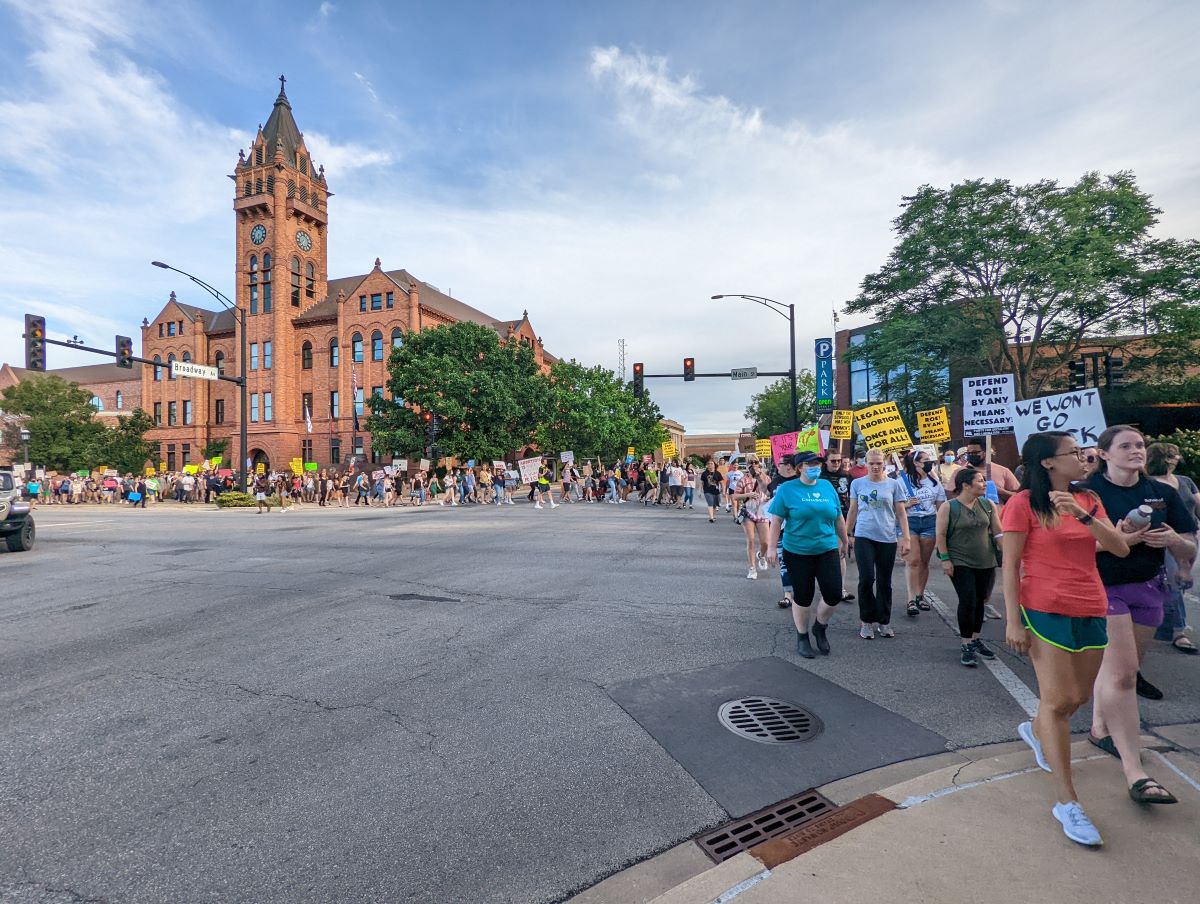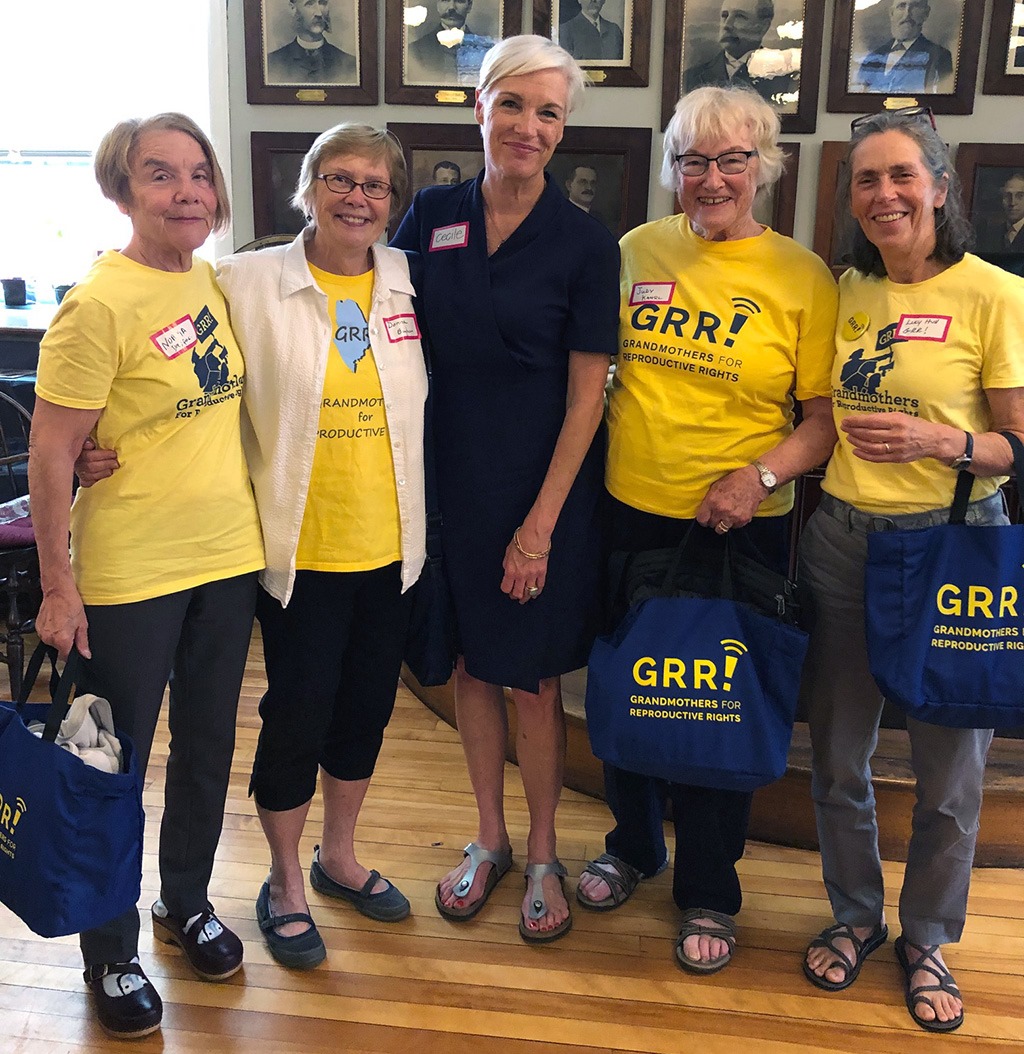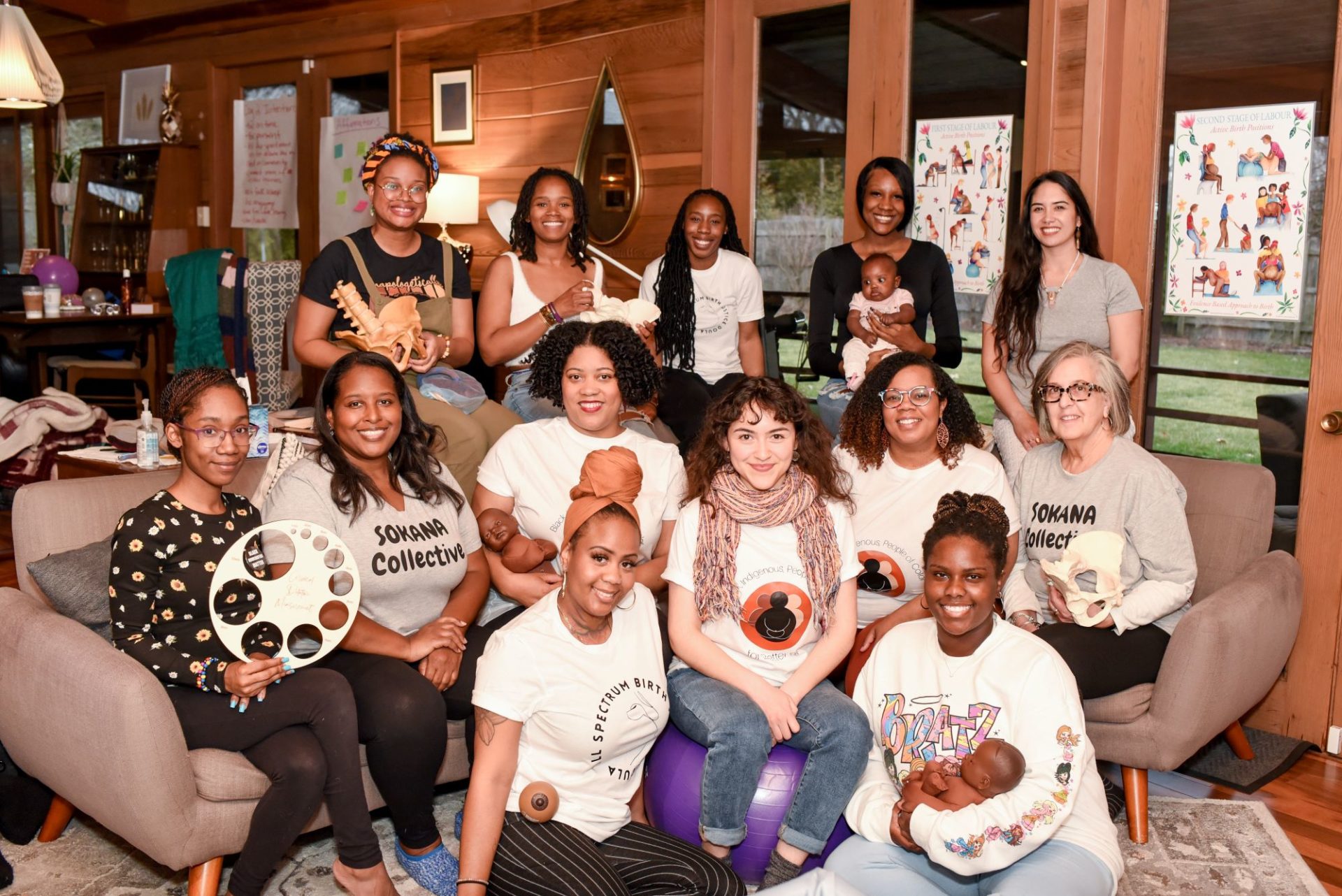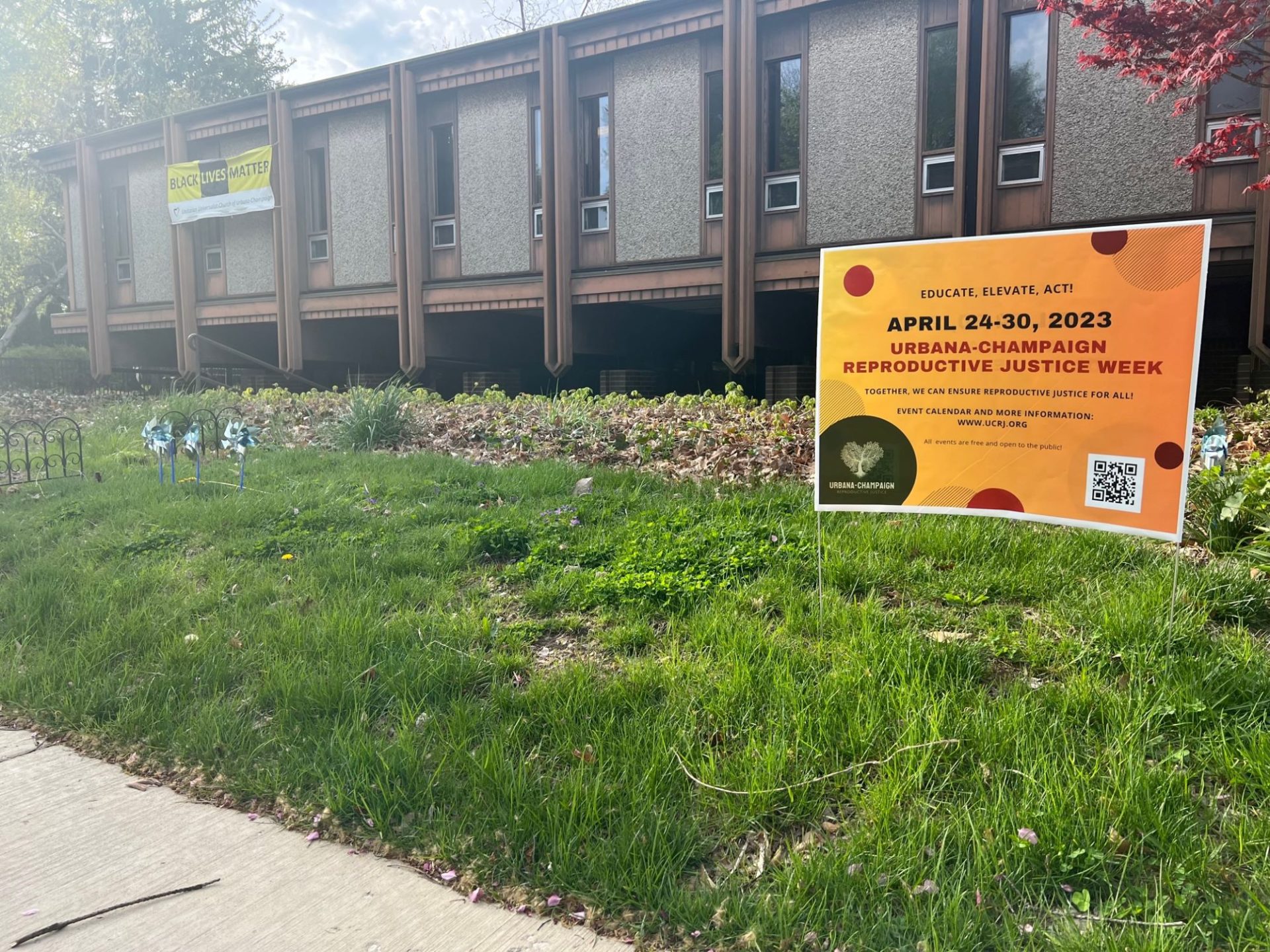Thirty one years ago, while living in rural Colorado, where the only sex education was abstinence-only education, Julie Laut got pregnant at the age of 17, and chose to have an abortion. She had to tell her parents, because she didn’t have the ability to pay or transport herself two and a half hours to Denver on her own. “It was hard…I was the straight-A student, top of the class, lead in the play…all these kinds of things. I’d put off having sex all through high school and finally made this decision. No one told me condoms are only 80-90% effective.” This all happened in the summer after high school, and then it was off to college.
It was there that she first got into advocacy surrounding reproductive justice. “This was the early 90s, when there was a lot of the very aggressive anti [choice] side, with assassinations and bombings.” Roe was weakened by Supreme Court decisions in 1991 and 1992. Laut got involved with the National Organization for Women (NOW), NARAL Pro-Choice America, and Planned Parenthood.
“My whole life I’ve been responsive to things that were happening at the time.”
After having her first child, Laut became involved with breastfeeding advocacy while living in Portland. “You can take your kid with you to do that!” She worked with the organization Nursing Mothers Counsel to bring lactation services to those who typically did not have access.

She’s also not a stranger to community work and activism here in Champaign-Urbana. When we spoke with her back in 2020, she’d just joined Urbana City Council, was very involved with the Unitarian Universalist Church of Urbana-Champaign (UUCUC), had a food pantry in her front yard, and was running the weekly virtual trivia game C-U Lockdown Trivia in an effort to create community during the early months of the pandemic and raise money for local organizations. Unfortunately due to issues with chronic illness, she had to step down from the council. But she is still very involved with her church, and is still running trivia games, though monthly rather than weekly. The food pantry now lives at UUCUC.

When the Dobbs decision happened last summer, Laut showed up at the local protest. “I shared my abortion story, and I cried, and I screamed, and then I went home and was like ‘I don’t want to go and hold a sign anymore.’” That fall, Laut hosted a fundraiser for the Chicago Abortion Fund in her backyard, to sort of gauge interest having a more coordinated local effort surrounding reproductive justice. In just one evening she raised $4,000.
This past January, she gathered some stakeholders — others in the community who are passionate about reproductive justice, and doing the work in relation to reproductive justice — and asked for buy-in to make Champaign-Urbana’s first Reproductive Justice Week happen. What resulted was a steering committee of people from the community and University of Illinois, including Laut, Karen Tabb Dina and Tuyet Mai Hoang from the School of Social Work, Leslie Reagan from the Department of History, Reverend Sally Fritsche from UUCUC, Nicole Frydman from Uniting Pride, and Stacey McKeever from Planned Parenthood of Illinois. There are others who have chosen to remain anonymous.
After pulling together the organizers, she began to reach out to everyone she knew who might be able to contribute their knowledge, services, expertise to this endeavor. “And I will tell you, the UU church social action committee committed as much as $3,000 to the project. But at this point, I’ve only spent $300. People have been willing to donate time, donate space…it’s incredible.” What’s resulted is a week filled with in-person and virtual events all centered on the theme “Educate, Elevate, Act.”
Laut’s aim was to a wide range of community members with the events included in this week. “Think of anyone over the age of 16. Could we have one event that could be of interest to them?”
When you look at the list of events that are planned for the week of April 24-30, there are certainly those that center abortion and abortion rights, but the umbrella of reproductive justice is much more complex than that, and you will see that reflected in the schedule. “We have to give credit to the fact that the framework of reproductive justice was established by a group of Black women in the 90s. They were saying yes we need abortion rights, but also more of us are dying. Our children are in unsafe environmental situations.” On April 25th, there is a Teach In Lunch and Learn that focuses on this history.
Laut listed some of the other issues wrapped up in reproductive justice: making breastfeeding easier and more accessible, doula care, prenatal and postnatal care, racist responses to women’s pain, fertility issues in the LGBTQ+ community. “The foundation is bodily autonomy. We should have a structure that is set up to let us choose whether or not we have children. And if we choose to, we are able to raise them in a safe and healthy environment.”
It can even extend to mental health support and food access. Said Laut, “I had the privilege of all of those resources, and everyone deserves that.”
It’s a scary sort of landscape for reproductive justice right now in the United States, as numerous states are using the Dobbs decision to further restrict abortion access. At the national level, because of a Trump-appointed judge in Texas, the fate of mifepristone, the commonly used abortion-inducing drug that has been FDA approved for 20 years, hangs in the balance. We are fortunate here in Illinois, and in C-U, relative to other states. A new abortion clinic opened recently. Our local Planned Parenthood clinic is now providing surgical abortions. Earlier this year, Governor Pritzker signed the Reproductive Health Act into law, which adds layers of protection for patients receiving reproductive and gender affirming care, and for providers. But as we’ve written about before, that doesn’t mean that there are not still barriers to access in this state, and in this community.
“The first thing that comes to mind isn’t here, it’s 30 minutes away where Danville meets Indiana, and the Danville City Council is pushing to make them a ‘sanctuary for life’ city to block the creation of a new clinic.” Laut praised the legislation that has come through recently, but wants to see more of the grassroots piece happening at the community level. “Are people getting access to information that they need early enough to be able to make a decision about pregnancy?” Another April 25th event addresses the existence of two anti-abortion centers in town (often referred to as crisis pregnancy centers), and their misinformation campaigns meant to deter pregnant people from seeking abortion care.

Even in 2023, stigma is still a major barrier. “Pretty much every time I talk to someone [about my abortion] they say oh I’ve also had an abortion, or I took my sister to get one…reducing the stigma about it is really important.” One group that will be involved with a couple of the events next week is Grandmothers for Reproductive Rights (GRR!), a national storytelling program for “elders who had abortions during the pre-Roe years and beyond” meant to encourage others to share their stories. Laut chuckled a bit as she described one of their key messages, “Grandma says it’s okay.”
Laut recommends that folks attend a virtual event on April 24th, from 6 to 8 p.m., that she calls a “guided conversation” about abortion, an issue that Laut says “is not as black and white, pro and anti as we think.” As she’s found when spreading the word about these events, many people have a limit to what they are comfortable with when it comes to abortion care — a boundary of what they consider acceptable — and this is an opportunity to have an honest discussion about what those are, and how to reconcile them with the ideas of bodily autonomy and choice.
At Spurlock Museum on April 27th there are two events, which include a legal panel examining the ever-shifting landscape for reproductive and gender affirming care. It’s followed by a screening of Aftershock, about two families who come together after two women lose their lives after childbirth, addressing the maternal mortality, particularly among Black women. Laut felt it was important to include a focus on Black maternal health, and was able to connect with BIPOC for Better Birth to join in discussion after the film.

That organization will also host their own event on April 29th at the IMC, “Doulas for Birth Justice.” It’s a diaper and menstrual product drive, where you are encouraged to donate diapers, disposable postpartum underwear, and overnight maxi pads. You’ll also have the opportunity to learn about their work “combating racial disparities in maternal and infant health outcomes.”
Other events throughout the week include a Lunch and Learn about reproductive justice for 2SLGBTQIA+ people at the University YMCA, an author event at The Literary with Kate Clancy, author of Period: The Real Story of Menstruation, the rescheduled Rally for Queer and Trans Youth Autonomy, and the week will culminate in a Party for Reproductive Justice at Rose Bowl Tavern with local bands and a raffle. Visit the Urbana-Champaign Reproductive Justice Week website to find the full list of events, and to RSVP for those you plan to attend. You’ll also find ways to get involved, and get updates on future actions and events.
Even with all of the terrible legislation happening across the country, and the continued existence of community and social barriers to reproductive care, Laut has hope for the future. “The issue of reproductive justice has been with us for a long time, and the huge attention that has been brought to abortion through these things gives us a way in…my goal is to use my skill set and my voice to make connections for people and find opportunities [to do the work].”








